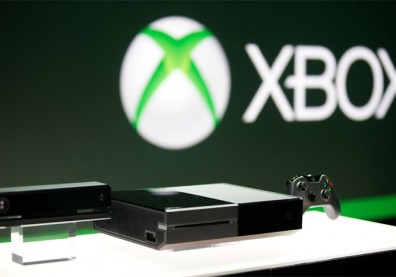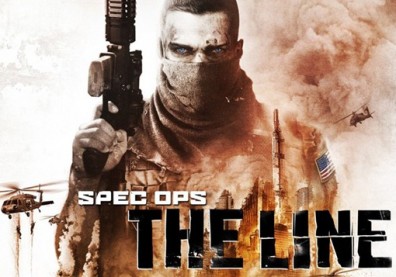On principal, a console probably shouldn't require users to connect it to the internet for it to work. It's a frightening proposition, especially for your core, single-player gamers out there, who might just not give a crap about playing online. All that connectivity can take a hike, some, like my colleague Luke Caulfield, might say.
But on principal, I should probably put jelly on my peanut butter sandwiches, but screw jelly, I just want a whole bunch of peanut butter. It's what I like. Microsoft's next console is currently an unknown, and maybe in a week or two I'll be biting my tongue, but the rumors are turning dense and specific, and we may just be getting an always-online console. Connect to the internet or get out, in other words, which doesn't sound very nice. It sounds downright evil even, in the right light, but try not to jump to conclusions and, more importantly, try not to think exclusively about yourself. The implications of an always-online console are, on its surface, completely in Microsoft's favor business wise - the used games market goes by-by, piracy is prevented in spades, regulation over the use of their console skyrockets - but those aren't the only changes as a result of being always-online. But before we get into all that, let's talk about the "Call of Duty" running, Netflix-spewing thing in your living room.
Your Xbox 360
In a thousand years, when peoples' heads are stuck inside gaming hats in order to appropriately interact with other gaming hat wearing people, what are they going to say about the Xbox 360? Not the games, nor the developers, nor even the Microsoft; they'll speak of Xbox Live and all the ways it changed hardcore gaming. Introduced on the original Xbox, Xbox Live became the ultimate destination for online gaming by the end of the Xbox 360's lifetime. That's what it does. It connects - gamers to each other, games to servers, movies and TV shows to screens, Microsoft to the masses. It's a media hub with a controller, a brilliant and ongoing marketing scheme to bypass all middlemen and a place to digitally download video games.
Everything great about the Xbox 360, as strictly a console, is wrapped nice and tight into an Xbox Live burrito, steaming and enticing and spicy and tasty - everything your 15-35 male demographic gamer needs for the kind of online gaming the Xbox 360 offers. For Microsoft, the Xbox was an experiment in online console gaming, the Xbox 360 was the first true success in that arena, and the Xbox 720 will be a surge for dominance in one thing alone - as the ultimate online media hub for your living room.
So Why Not?
That's what Xbox means. It's built for online connectivity, so why not require it to be always online? Used games sold from a retailer go out the window, boohoo for you, but that means both Microsoft and the developers you claim to support finally see every dime that would have otherwise been spent on the second-hand market. Oh no, Gamestop fails. Same deal with piracy. If you're crying about not being able to steal a game and play it on your Xbox, you've got no place in this conversation. Of course, those aren't the most pressing issues. The pressing question, the one we all worry about, is what if my internet goes away for any number of reasons? Then I'm left without a console.
And yes, that's a valid concern, but not for a console built specifically to be online. The advantages of a console specifically built around that feature can only make that console better at doing what it was meant to do. That sentence was vague and nonspecific for a reason - look at the Wii U and its GamePad. The touch-screen controller/hybrid, without a doubt, bloated the console's price, but what would the Wii U be without the Gamepad? Nintendo's console is that central feature, or gimmick for the cynic, just like Microsoft's console, and entire business strategy, is the lettuce and rice of that Xbox Live burrito. It's the stuffing that brings all the components together, and there's no point in having any Xbox without it, 360, the original or the inevitable 720. And much in the same way developers can approach the Wii U's gamepad with one hundred percent confidence in a gamer having that feature, unlike the failed attempts at second screen gameplay by Sony and Microsoft, developers can do the same for online connectivity. Think about that implication:
No more forced single-player components for multiplayer-centric games. You know what I'm talking about, "Battlefield" and "Call of Duty." In gaming on an always-online console, gamers are telling developers exactly what they want and the next Xbox then becomes a hub for always-online games. This brings us to other genres: MOBAs, MMORPGs and other PC-centric games that need that internet connection, they can finally come over to Microsoft's console in greater numbers than we're currently seeing with much more confidence.
Other small details, like integrated social-aspects, can be fully integrated into games instead of as an option for the socially-inclined. It's a way for developers to approach developing a game with absolute confidence in who they're developing the game for. That's good right?
But What About the Rest of Us Non-Online, Non-Connected Gamers?
Go buy a PS4. That's the beautiful thing. Microsoft doesn't want to own the entire gaming market, they just want the lucrative online-hub-interested gamers and the consumers interested in using it for other media purposes. Sony, on the other hand, is pushing the "for the gamer" line to a maximum degree, referring specifically to those old-school hobbyists who are more likely to fall under the games-as-art category than the games-as-competition. The market isn't letting you down, fellow lover of all games, it's just defining its sectors more specifically when Microsoft pushes always-online connectivity, if they do. And then there's the Wii U, with its own thing, with its own audience, that may or may not be around in a year or two. Gamers are voting, and if it's the always-online experience you want, Microsoft is, in all likelihood, going to offer that, but if it's the core single-player way of the game you prefer, you aren't lost. You may just have to trade loyalties for once. It's a new generation, after all.









